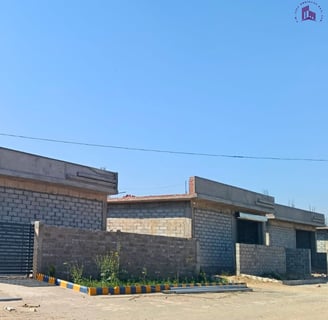Let Us Explain!
Difference between industrial area and industrial estate
4/18/20253 min read


Difference between industrial area and industrial estate
In a world that is growing in terms of urban planning and constant economic development, terms like “industrial area” and “industrial estates” often pop up. Now it can get really confusing but there are a bunch of things that set them apart.
Both these terms are widely used for almost the same things but yet differ in terms of scale, purpose and management. Let’s understand each of these phrases separately.
Industrial area: Everything you need to know
What is an Industrial area?
An industrial area refers to a broad region within a city or a town that is designated for industrial activities. They are identified in the urban zoning plans and can be used for every kind of industrial operation from manufacturing plants to logistic centres to even warehouses. Industrial areas are usually larger in scale and are typically located outside the cities to minimise the impact of noise, pollution and commotion near residential zones.
Industrial estate: Everything you need to know
What is an industrial estate?
An industrial estate is a planned and fully managed industrial zone which is typically smaller in scale as compared to industrial areas. These estates can be developed and maintained by either government bodies or even private developers. Industrial estates are mostly designed to host small to medium-sized enterprises also known as SMEs.
Here are some characteristics of both detailed out to help you understand the difference between industrial areas and Industrial estates.
Planning and development of an Industrial area vs an industrial estate Industrial area:
The development of industrial areas is typically less structured. They usually evolve naturally without a detailed master plan resulting in a mix of offerings and infrastructure. In the longer run, this kind of growth can sometimes lead to challenges in managing basic things like land use, pollution and other logistical issues. Industrial estates on the other hand are developed with a strategic logic that caters to the specific needs of businesses. These estates are defined with a prime focus on efficiency, sustainability and ease of usage. The planning process often involves selecting an appropriate location, designing the infrastructure, and ensuring end-to-end compliance with government authorities. As a result estates usually feature well-maintained roads, utility services and extra support facilities such as offices, security, electricity and regular water supply. Infrastructure and amenities This may just be one of the most significant differences between industrial areas and industrial estates. Industrial areas are usually developed organically and usually have an inconsistent infrastructure.
For example, the road quality may vary, and access to basic utilities like electricity and water may be inconsistent. Industrial estates however are designed to provide a very high level of infrastructure and amenities custom-made for industrial needs.
From robust transportation services to proximity to ports or airports - industrial estates have dedicated facilities for all business owners. Other things that you can expect to consistently have in an industrial estate are proper waste management, water treatment, energy supply, training centres, conference rooms and other recreational facilities for employees.
Environmental and government regulations It is often seen that regulatory compliance in an industrial area might be less stringent - leading to a lot of potential concerns like pollution and inefficient land usage. The inherent nature of industrial areas can make it challenging to implement and monitor environmental regulations effectively. On the other hand, industrial estates are mostly subject to rigorous planning and regulations from the onset.
Developers of industrial estates like A. D. City ensure that the design and operation of the estate meets all environmental standards including pollution control, waste management and sustainable use. This kind of proactive approach helps in taking care of the environmental impact of industrial activities and promotes sustainable development. AD City is committed to providing all the necessary features that will help leading and upcoming businesses in structured progress.
You take care of the business and we take care of the unit for you is a promise that will help industries set up without going through the hassle of planning anything else.
